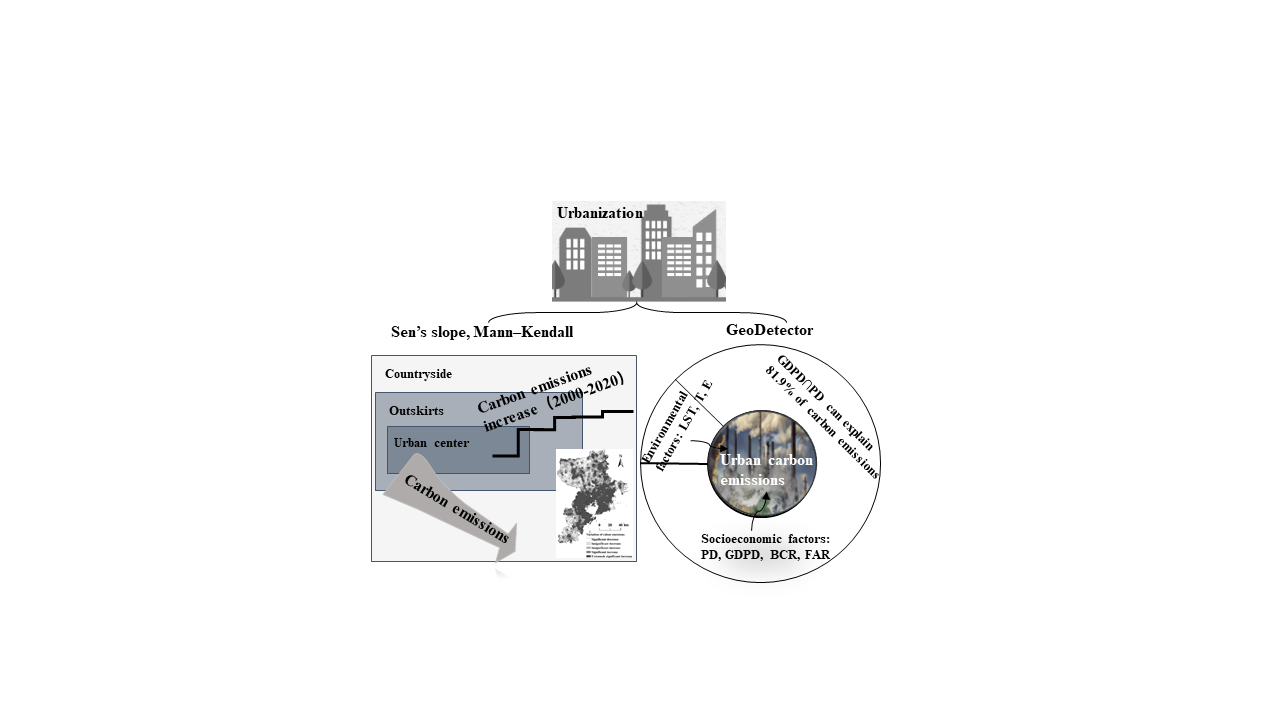
Investigating the spatiotemporal characteristics and factors of urban carbon emissions is essential to reduce carbon emissions and achieve dual carbon goals. In this study, we examined the change tendency of carbon emissions using the coefficient of variation, the Sen’s slope method, and the Mann–Kendall (MK) test and explored the effects of socioeconomic and environmental variables on carbon emissions using GeoDetector, in Qingdao City. The results revealed that: (1) From 2000 to 2020, carbon emissions increased annually, the area ratio of high carbon emissions increased and of low carbon emissions decreased yearly. Over 73% of carbon emissions have changed in a moderate way (0.1< CV < 1) and 80% of Qingdao City experienced an increased tendency (β > 0) in carbon emissions. (2) Carbon emissions diminished gradually from the urban center to the periphery. There were significant spatiotemporal disparities from one another in the subareas, Municipal districts had the largest variation degree (CV=0.32) and a huge growth trend of carbon emissions, while Laixi, Jiaozhou, and Pingdu were minor. (3) Socio-economic factors demonstrated a stronger ability to explain carbon emissions than environmental factors. GDP density, population density and floor area ratio were the key variables that affect the spatial distribution of carbon emissions, and the interaction between GDPD and PD can explain 81.9% of the carbon emissions in Qingdao. New technologies and materials, low-carbon energy consumption and lifestyles, and acceptable economic growth were the main strategies for Qingdao to become a low-carbon city.
Total file downloads: 11